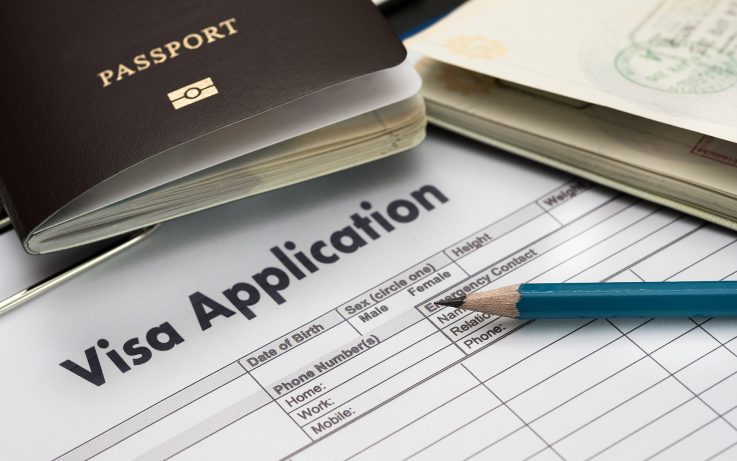How to expand your business to UK market

In today’s context, more and more businesspeople are striving to enter the international market to expand their business and have access to new growth opportunities. One of the most sought-after countries for international business expansion is the United Kingdom.
Such an approach not only increases the profit but also has other positive effects. They include building business capacity, increasing competitive performance and sales, attracting new customers as well as significant network expansion, enhanced company goodwill and brand recognition.
Objectives of overseas business expansion
Entrepreneurs start the international expansion for several reasons:
- To increase profit: The international market attracts new consumers and expands the customer base, which can lead to more sales and profits.
- To diversify client base: International business expansion mitigates the risks of dependence on one region or market and diversifies the client base.
- To have access to new opportunities and innovations: The international market can offer new ideas, technologies and partnerships that can contribute to business development and innovation.
- To achieve exchange rate stability: international expansion means sales in dollars, euros or pounds – currencies less susceptible to major fluctuations.
Why is United Kingdom great for doing business internationally?
When choosing a country for entering the global market, it is important to consider a number of factors. Traditionally, there are several popular jurisdictions for doing business, such as the Caribbean Islands, and Western European countries, including the United Kingdom.
The UK has one of the world’s leading economies that offers different advantages for businesses. Some of them can be decisive factors:
- Favourable business environment: The advanced economy and stable political situation in the United Kingdom promote attractive conditions for business. Setting up and incorporating a company is fairly simple, and it is quite easy to access financial and tax services.
- Well-developed infrastructure enables efficient business operations. It includes high-speed internet, transportation networks, banking services and other important elements for the successful functioning of a company.
- Geographic location: Great Britain is a bridge between Europe and North America. This makes business with other Western countries and international partners easier, opening the doors to more consumers.
- The developed market with high growth capacity allows for an increase in the pool of customers and attracts foreign investors and businesspeople.
- Cultural relations and lingua franca: English is the international language of business, and the UK has cultural ties with various countries that facilitates communication and interaction with customers and partners.
What do I need to know to set up company in UK?
Setting up a company in the UK can be a time-consuming process, but preparation and knowledge are key to expanding your business. It is worth noting that the UK government supports small and medium-sized enterprises, especially by simplifying incorporation and annual reporting procedures. For example, there are relief schemes and different categories of visas are issued to foreign entrepreneurs.
When it comes to establishing a company in the UK, you should consider several aspects.
- The company type should be selected depending on business aims and needs. Each legal structure has advantages and disadvantages when it comes to liability, taxation, administrative requirements, and flexibility. When choosing the right business structure, it is crucial to consider certain factors, such as the nature of the business, the number of owners, and the expected liability level. Before making a decision, it is important to consult with legal and financial advisors to understand the specific implications and requirements of each legal structure.
The UK offers the following forms of legal structures:
- Limited Liability Company;
- Public Limited Company;
- Sole Trader;
- Limited Liability Partnership;
- Limited Partnership, including Scottish Limited Partnership;
- Incorporation and legal requirements. To set up a company in the UK, you must register it with Companies House. This body is responsible for incorporating and regulating business in the country. Once your company is set up, it is crucial to comply with relevant legal requirements such as tax reporting and payment of taxes;
- Share capital: To start a company (Limited Liability Company and Public Liability Company only) in the UK, it is necessary to determine sufficient share capital to cover the costs of setting up a company and to elect shareholders;
- Finance and business: To ensure financial stability and compliance, it is important to think about capital, bank accounts, and taxation. After registering with HM Revenue and Customs (HMRC), it is necessary to pay taxes according to the current legislation. A very important detail is that the UK offers corporate tax credits to reduce the corporation tax rate; it has also signed double-taxation agreements with a number of countries.
Who can provide support when expanding business internationally?
When entering the international market and setting up a company in the UK, it is advisable to look for professional help. Legal advisors can provide expertise and assistance with the necessary paperwork, visas and permits, as well as clarify how to follow the regulations and requirements.
Entering the overseas market is not easy and requires a good understanding of international law and procedures. Therefore, many entrepreneurs consult experts to solve overseas trade and business issues.
They can help you get to the bottom of various matters and provide advice on starting a business in the UK.
For example:
- International consulting companies support businesses by providing expertise and resources to successfully start up and grow a business overseas.
- Trading and economic agencies: Government and non-governmental organisations promoting international trade and economic cooperation will provide information on markets, regulations and requirements for entering overseas markets.
- Business associations and chambers of commerce bring together companies of a particular industry or region; they offer network opportunities, training programs and resources.
- Banks and financial institutions can provide financial support and advice on overseas expansion, such as foreign exchange transactions, export financing and investments.
- Overseas trade shows and exhibitions can help a company attract potential customers, partners and investors from different countries.
- International law firms and accountant companies provide support with legal and financial issues when expanding overseas.
- International marketing and advertising experts will develop effective promotion and communication strategies.
- Logistics and transportation companies will assist in the efficient delivery of goods and services.
It is important to choose partners and advisors who have experience and expertise in international business, specific markets, and industries. A combination of different specialists and organisations can help a company successfully enter the overseas market and achieve its goals.
Taking your business internationally to the UK can open up new horizons for growth and development. However, before making a decision, it is important to research the market, understand legal and financial requirements and seek professional advice to ensure a successful overseas business expansion.
What strategies can help move business overseas to UK?
To successfully expand your business to the UK, you need to develop a strategy that is tailored to the market and customer needs.
Below are a few strategies that can help in this process:
- Before going international, you need to research the market and understand your competitors. It is an excellent way to determine customer needs, product requirements, pricing policies, as well as competitors’ benefits and drawbacks.
- To successfully enter the overseas market, it is necessary to adapt the product to the local needs and cultural experiences, which implies changes in design, packaging, marketing strategy, etc.
- Focus on finding local partners. They will facilitate communication with companies and customers, as well as provide local expertise. The domestic market can be explored by finding distributors, agents or joint venture partners.
- Alongside this, opening a local representative office (a branch or subsidiary) in the UK will help you establish direct links with customers providing more efficient logistics and service.
- Participate in international trade shows and conferences. This is a great thing to present your business and product to a wider audience, which can also help approach potential customers and partners.
- Beyond that, the internet and e-commerce allow reaching more consumers and attracting customers from all over the world. Setting up an international website, optimising content for search engines and using digital marketing will attract consumers and boost sales. Creating a social media account and collaborating with popular bloggers and influencers will promote a product and attract more attention to the brand.
International business expansion in the UK is a significant step for business development. It can be a challenging process, but the right strategy can bring significant results. You need to thoroughly research the market, and analyse customer needs to determine the most effective sales channels that best fit the business and the target audience.
Doing business internationally allows you to expand the pool of customers, increase profits, and achieve stability.
Do not forget to consider the peculiarities of setting up a company in the UK, such as the type of company, incorporation requirements, financial aspects, etc. To successfully enter the overseas market, it is recommended to seek the help of immigration advisors who will provide professional support and advice.
FAQ about international business expansion in UK
What are potential problems when expanding business overseas, particularly to the UK?
Difficulties may arise when incorporating a company, registering a product, and dealing with financial issues. Opening a bank account or language barrier may become a problem too when it comes to dealing with foreign partners who are used to different terms and rules of doing business. If you are not sure about certain things, it is worth contacting experienced professionals who will help you set up the business processes.
Why do I need to expand my business to the UK market?
Going international allows you to increase your audience, boost profits, diversify your customer base, and gain access to growth opportunities and innovations.
What factors should be considered when setting up a company in the UK as a way of expanding business overseas?
When setting up a business in the UK, you need to carefully choose the legal structure and company name, file accounts and pay taxes, and open a bank account. It is best to contact specialists who will provide expert advice.
What strategies can help move a business overseas to the UK?
Different strategies can be used to successfully enter the UK market, such as researching the market and competitors, customising products, finding local partners, setting up a local office, using digital channels, and promoting with modern and traditional tools.
What are the features of various company structures?
- Limited Liability Company (LTD):
- Suitable for small and medium-sized businesses.
- Shareholders’ financial liability to the company is limited to their shares in the share capital.
- Share capital starts from £1.
- Founders and directors have no restrictions when it comes to nationality, place of physical or tax residency.
- Public Limited Company (PLC):
- A higher status among other legal structures.
- Company shares can be freely traded on the stock market.
- There must be at least 2 directors (individuals) and one qualified company secretary.
- Minimum share capital of £50,000.
- Sole Trader (ST):
- Simple registration. Income goes to an individual who is liable for personal income tax after the deduction of allowable expenses.
- Sole Trader has more control over their business as they make all decisions themselves and their business data is not publicly available.
- Little paperwork or red tape is involved in setting up a sole trader business as there is no need to register with Companies House. However, returns to the tax authorities must be filed annually.
- Limited Liability Partnership (LLP):
- There is no corporation tax as the profit is distributed among partners.
- Partners are liable for the results of the partnership agreement to the extent of their initial contribution.
- In some circumstances, no stamp duty is payable when purchasing real estate.
- Limited Partnership (LP):
- There is no corporation tax.
- The General Partner is liable for debts and activities of the partnership with all their assets. The other partners are liable only within the amounts they have invested in the partnership.
- LP is exempt from financial reporting to Companies House, but tax returns must be filed annually.







